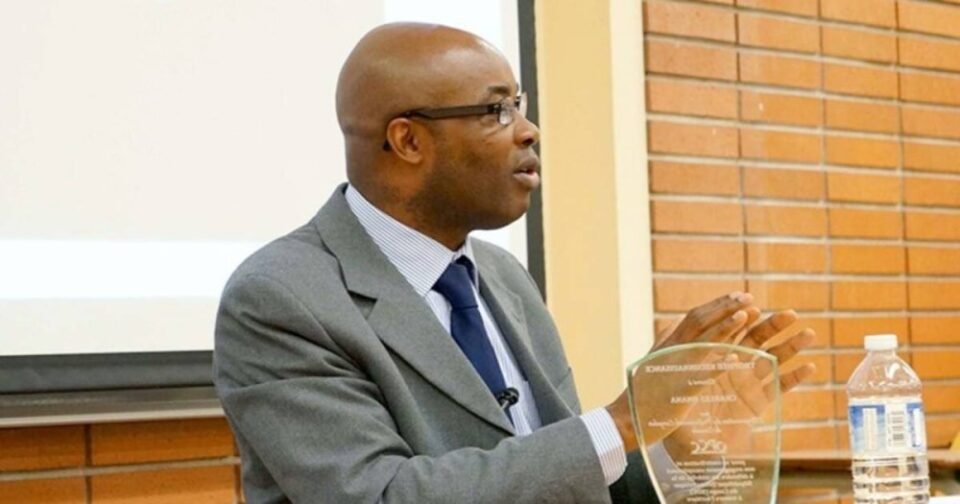Historic Conviction Under French Law
A Paris court has convicted French-Cameroonian author Charles Onana and his publisher, Damien Serieyx, for denying the 1994 Rwandan genocide. This marks the first case of its kind under French law. The court ordered the defendants to pay nearly $15,000 in fines and an additional $11,000 in damages to three human rights organizations that filed the case. Both Onana and Serieyx have appealed the decision.
The Controversial Book
Onana’s book, Rwanda, the Truth about Operation Turquoise—When the Archives Speak, publicly questioned the existence of the Rwandan genocide. The court identified 19 passages that violated a 2017 amendment to France’s press law, which criminalizes genocide denial while safeguarding free speech.
In the book, Onana claimed that the narrative of a Hutu-led regime’s planned extermination of Tutsis was “one of the biggest scams of the 20th century.” He consistently used quotation marks around the word “genocide” and dismissed the rescue efforts by the Rwandan Patriotic Front (RPF) as “a scam, a hoax, and a falsification of history.”
The Court’s Ruling
The court highlighted the dangers of such claims, especially given the fragile political climate in the Great Lakes region of Africa. It referred to a prior ruling by the International Criminal Court for Rwanda that recognized the genocide of Tutsis as a crime of public notoriety.
Patrick Baudoin, lawyer and honorary president of the International Federation for Human Rights, called the ruling a precedent-setting decision. “You can’t falsify history with impunity, and you can’t have contempt for the victims,” Baudoin said, describing Onana’s words as “monstrous.” He further accused the author of being “an apologist for genocide” and praised the court for its indispensable action.
Revisiting the Rwandan Genocide
The Rwandan genocide, which occurred over four months in 1994, led to the slaughter of approximately 800,000 Tutsis by Hutu extremists. France’s involvement in the genocide has been controversial. The United Nations authorized Operation Turquoise, a French-led military intervention, but it failed to prevent the massacre.
In a 2021 speech in Rwanda, French President Emmanuel Macron acknowledged France’s “crushing responsibility” for the atrocities.
Criticisms of Onana’s Research
Onana’s book challenges the established accounts of the genocide, claiming that both Hutus and Tutsis committed atrocities. He described his work as “scientific,” originating from his thesis at the University of Lyon III. However, the university has faced past allegations of hosting Holocaust denial research, casting doubt on Onana’s neutrality.
Serge Dupuis, a historian specializing in Rwandan history, criticized the book in a review for the Jean-Jaurès Foundation. Dupuis noted Onana’s heavy reliance on French military sources and officials involved in Operation Turquoise, stating, “The failure to be neutral is flagrant.” He argued that Onana’s depiction of Operation Turquoise as beyond suspicion was a clear denial of evidence.
Broader Implications
The ruling reflects a growing trend in French courts addressing genocide and Holocaust denial. Previous convictions have targeted figures like far-right politician Jean-Marie Le Pen and writer Robert Faurisson for denying historical atrocities. This case, however, is the first to address denial of the Rwandan genocide.
Reactions
Rwandan Minister of Foreign Affairs Olivier Jean Patrick Nduhungirehe welcomed the court’s decision. “I hope this landmark decision will discourage all negationist journalists, writers, and politicians active in Europe and our region,” he stated in a post on X (formerly Twitter).

